

Blueberries are not only a tasty treat for humans but also a superfood that can greatly benefit your dog’s health. They pack a powerful nutritional punch and offer several advantages when incorporated into your dog’s diet.
Packed with antioxidants, these berries will:
They’re also a great source of vitamins C and K, promoting healthy skin, joints, blood clotting, and bone health. Additionally, blueberries are rich in dietary fiber, aiding digestion and regulating bowel movements.
What’s more, blueberries are an excellent choice for weight management due to their low calorie and fat content. They provide a sweet treat without adding excessive calories, making them a healthier alternative to high-calorie snacks.
Blueberries contain anthocyanins, the natural compounds responsible for their vibrant blue color. These compounds have been linked to improved cognitive function and enhanced eye health in dogs. Regular consumption of blueberries can help maintain mental acuity and promote optimal vision in your furry friend.
When introducing blueberries to your dog’s diet, start gradually and in moderation. Observe your dog’s response and be cautious, as some dogs may have sensitive stomachs. Too many blueberries can lead to digestive upset.
, Mask-group-1.png, 100378, https://littlecheftreats.com/wp-content/uploads/2023/06/Mask-group-1.png, https://littlecheftreats.com/about/mask-group-1/, bowl with blueberries, 1, , , mask-group-1, inherit, 72, 2023-06-11 20:57:56, 2023-08-09 12:17:02, 0, image/png, image, png, https://littlecheftreats.com/wp-includes/images/media/default.png, 606, 536, Array)

Bananas are not only a popular fruit for humans but also a nutritious addition to your furry friend’s diet. They offer several health benefits when included in your dog’s meals.
In addition to their nutritional value, bananas are often well-tolerated by dogs with sensitive stomachs. They are easily digestible and can help soothe gastrointestinal upset or irritation.
When feeding bananas to your dog, it’s important to remember moderation. While bananas offer numerous benefits, they should be given as a treat or snack rather than a main meal. Too many bananas can lead to an upset stomach or weight gain due to their natural sugar content.

Peanuts are an excellent protein source, essential for building and repairing tissues, supporting muscle development, and promoting a healthy coat in dogs. Including peanuts in your dog’s diet can help ensure they receive an adequate amount of this vital nutrient.
Peanuts also contain healthy fats, including monounsaturated fats and omega-6 fatty acids. These fats play a crucial role in maintaining a healthy coat and skin and supporting overall cardiovascular health in dogs. However, it’s important to note that peanuts should be given in moderation due to their higher fat content, as excessive fat intake can lead to weight gain.
Peanuts also provide important vitamins and minerals such as vitamin E, niacin, and folate. Vitamin E acts as an antioxidant, protecting cells from damage, while niacin supports proper digestion and nervous system function. Folate is essential for cell growth and development, particularly for puppies and pregnant dogs.
When feeding peanuts to your dog, it’s crucial to ensure they are unsalted and free from any additives or flavorings. Salted or seasoned peanuts can be harmful to dogs and may lead to sodium toxicity.
To serve peanuts to your dog, it’s best to offer them in small quantities and as a treat or training reward. You can give them plain roasted peanuts or even consider crushing them and sprinkling them over your dog’s regular food as a tasty topper.
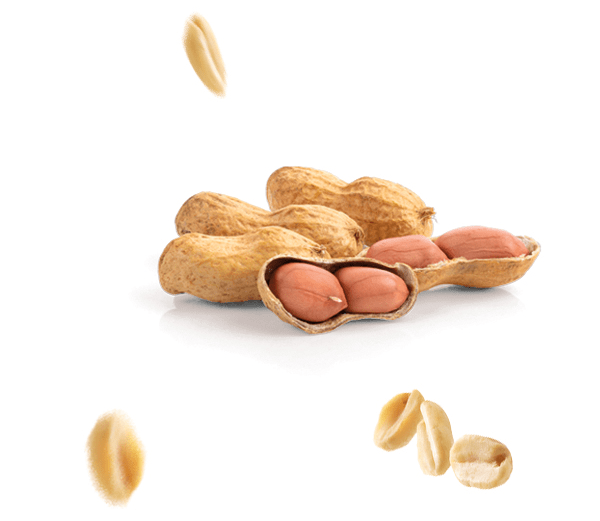
Carob is a natural and dog-friendly alternative to chocolate. It’s a delightful treat that not only satisfies a dog’s sweet tooth but also provides numerous health benefits. This dog-safe substitute for chocolate offers a range of advantages when incorporated into your furry friend’s diet.

Okara, also known as soy pulp or soybean residue, can be very beneficial for a dog’s health. It is a byproduct of soybean processing and offers various nutritional advantages for your dog’s health. This fiber-rich ingredient can contribute to dogs’ overall well-being when included in their meals.
It is an excellent source of dietary fiber. So, including okara in your dog’s diet can support their gastrointestinal health and aid in proper digestion. Okara contains protein, which is essential for muscle development and repair. Protein is a crucial component of a balanced diet for dogs, as it helps maintain a strong immune system and supports overall growth and vitality.
Okara is low in fat and calories, making it a suitable ingredient for dogs that require weight management. It provides a filling and nutritious addition to their meals without contributing excessive calories, helping to maintain a healthy weight and prevent obesity-related issues.
Furthermore, okara is a good source of vitamins and minerals, including vitamin B complex, iron, and calcium. These nutrients are necessary for various bodily functions, such as energy production, oxygen transport, and bone health. By incorporating okara into your dog’s diet, you can help ensure they receive a range of essential vitamins and minerals for optimal health.
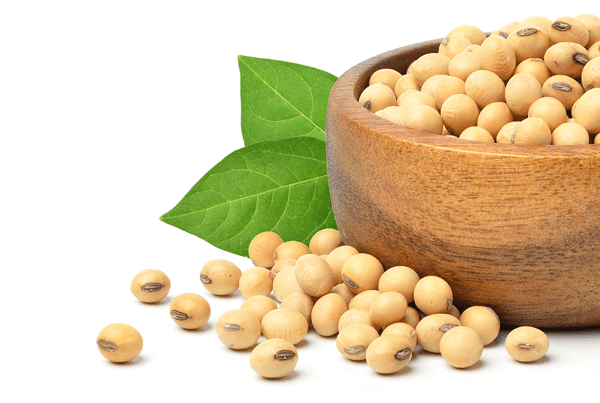
This herbaceous plant is known for its vibrant blue flowers and has been used for centuries for its medicinal properties. One of the notable benefits of chicory is its prebiotic properties. It contains a dietary fiber called inulin, which acts as a prebiotic by promoting the growth of beneficial bacteria in the gut. This can help improve digestion and support a healthy balance of gut flora in dogs.
Chicory is often used as a natural remedy for digestive issues. It can help alleviate symptoms of an upset stomach, such as diarrhea or constipation. The high fiber content in chicory can aid in regulating bowel movements and promoting regularity.
Chicory also contains compounds with potential anti-inflammatory properties. These compounds may help reduce inflammation in the body and support overall health and well-being in dogs, particularly in cases of chronic inflammation or inflammatory conditions.
Additionally, chicory is a rich source of vitamins and minerals, including vitamins A, C, and K, as well as calcium, potassium, and manganese. These nutrients are essential in various bodily functions, including immune system support, bone health, and antioxidant activity.
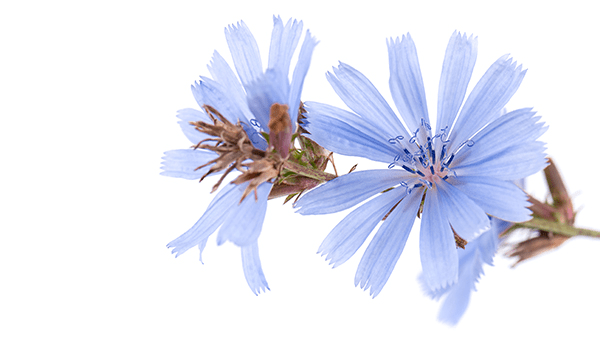
Parsley is rich in vitamins, minerals, and antioxidants, making it a valuable addition to your dog’s diet. One of its standout advantages is the fresh breath-promoting properties. Chewing on parsley leaves can help freshen your dog’s breath and minimize the occurrence of unpleasant odors. It acts as a natural breath freshener due to its chlorophyll content, which helps neutralize odors in the mouth.
Parsley is also a good source of vitamins A, C, and K.
Incorporating parsley into your dog’s diet can provide these essential vitamins for their overall health and well-being.
Other than that, parsley contains minerals such as calcium, iron, and potassium. Calcium is vital for strong bones and teeth, while iron is necessary for healthy blood circulation. Potassium helps maintain proper nerve function and muscle health. These minerals contribute to the overall vitality of your dog.
Parsley also offers potential anti-inflammatory properties. It contains natural compounds that may help reduce inflammation in the body, supporting joint health and alleviating discomfort associated with inflammatory conditions in dogs.
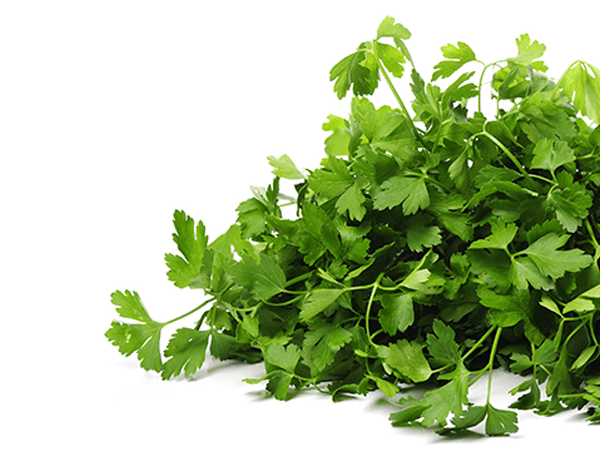
Coconut oil is a natural oil derived from coconuts and has become increasingly recognized for its potential health benefits for dogs. When used in moderation, coconut oil can provide several advantages for your furry friend.

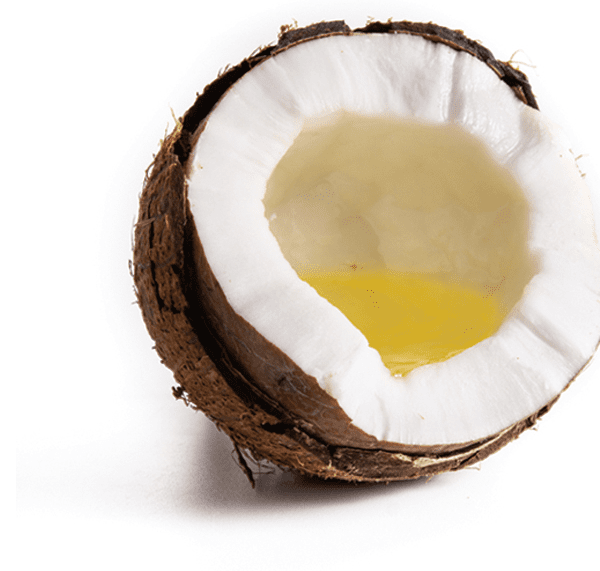
Derived from the Saccharomyces cerevisiae fungus, brewer’s yeast is a popular nutritional supplement that can provide various health benefits for dogs. It’s rich in essential nutrients and can support your furry friend’s overall well-being. The benefits of brewer’s yeast are its high content of B-vitamins, including B1 (thiamine), B2 (riboflavin), B3 (niacin), and Biotin (B7). These vitamins help with:
Brewer’s yeast is a valuable source of protein. Adequate protein intake is especially important for active dogs, growing puppies, and dogs recovering from illness or injury. It also contains minerals such as selenium, zinc, and iron. These minerals are essential for various bodily functions, including antioxidant activity, immune system support, and oxygen transport.
In addition to its nutritional profile, brewer’s yeast is often praised for its potential to support healthy skin and coat in dogs. It is believed to help reduce itching and improve the skin’s overall condition. Brewer’s yeast contains B vitamins, antioxidants, and beneficial amino acids, which can contribute to a shiny and lustrous coat.
Some proponents even suggest that brewer’s yeast act as a natural flea repellent due to its potential to alter the taste and odor of a dog’s blood, making them less attractive to fleas. However, it’s important to note that the effectiveness of brewer’s yeast as a flea deterrent may vary among individual dogs.

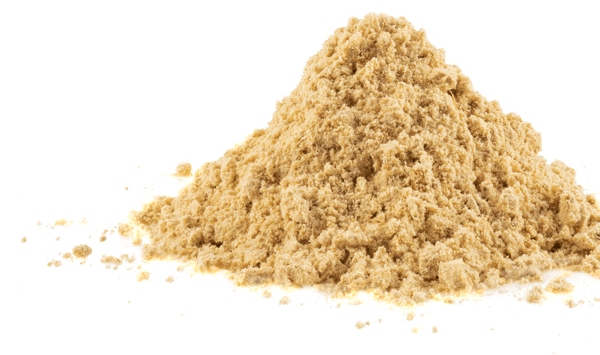
Cumin with its antimicrobial properties, thymol and essential oils fights against harmful intestinal parasites and promotes the health of the gastrointestinal tract.
Garlic is traditionally used for its powerful anti-parasitic effects. It contains allicin which fights against fleas, ticks and worms. When used in moderation, it helps ward off external and internal parasites.
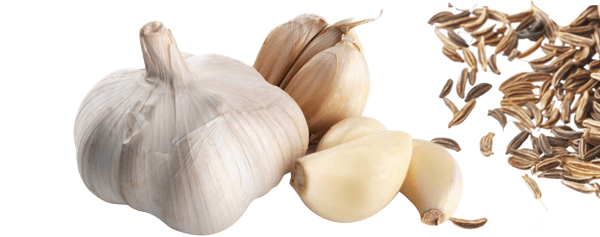
This nutrient-dense superfood is rich in vitamins, minerals, and dietary fiber, making it a valuable addition to your furry friend’s diet. The Hokkaido pumpkin is known for its high vitamin A content, crucial in supporting healthy vision, immune function, and cell growth and development in dogs. Vitamin A is essential for maintaining skin integrity and promoting a healthy coat.
Hokkaido pumpkin is a good source of dietary fiber, which can promote healthy digestion in dogs. Fiber helps regulate bowel movements, supports gastrointestinal health, and can assist in managing conditions such as constipation or diarrhea. It provides bulk to the stool and aids in maintaining regularity.
Additionally, Hokkaido pumpkin is rich in antioxidants, including beta-carotene and vitamin C. These antioxidants help combat the damaging effects of free radicals in the body, which can contribute to inflammation and chronic diseases. Antioxidants support overall health and help improve the immune system in dogs.
Another benefit of Hokkaido pumpkin is its low-calorie content, making it a suitable ingredient for dogs that need to manage their weight. It can serve as a healthy and nutritious addition to their meals while providing a satisfying volume of food.


Cinnamon is known for its aromatic and flavorful properties. While cinnamon may offer certain advantages for humans, it is advisable to approach its use in a dog’s diet cautiously.
However, in small quantities and when used in appropriate recipes or as part of specialized dog treats formulated with safe ingredients, cinnamon may add a touch of flavor and aroma. It relieves gastritis and facilitates food digestion by significantly reducing the amount of gas produced. It increases the sensitivity of cells to insulin and reduces blood sugar levels after a meal, which is very important for obese and diabetic dogs. It effectively slows down the development of fungi in the intestines and relieves joint swelling.
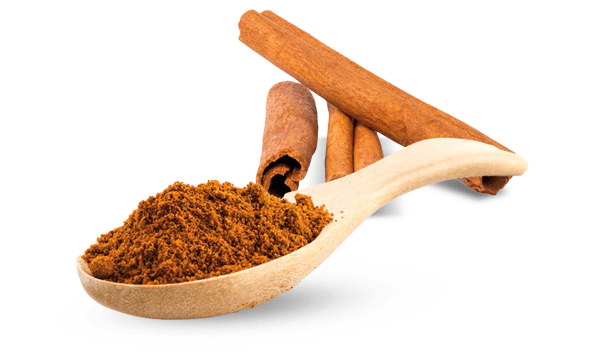
Linseeds, or flaxseeds, are a nutritional powerhouse that can provide numerous health benefits for dogs. These seeds are rich in essential nutrients, including omega-3 fatty acids, fiber, and lignans, so they’re a great addition to your pup’s diet.
One of the main benefits of linseeds is their high content of omega-3 fatty acids, specifically alpha-linolenic acid (ALA). Omega-3 fatty acids are essential for dogs’ overall health, supporting their immune system, promoting healthy skin and coat, and aiding in the proper functioning of various bodily processes. The anti-inflammatory properties of omega-3 fatty acids can also help alleviate joint stiffness and discomfort in dogs with arthritis.
Other than that, linseeds are an excellent source of dietary fiber. Adding linseeds to your dog’s diet can help promote optimal gastrointestinal health and contribute to a well-balanced digestive system.
Linseeds also contain lignans, which are plant compounds with antioxidant properties. These lignans have been associated with potential anti-cancer effects and may help reduce the risk of certain types of tumors in dogs. Additionally, the lignans in linseeds can contribute to hormonal balance and overall well-being.

Chia seeds are a nutritional powerhouse that can provide various health benefits for dogs. They are rich in essential nutrients, including omega-3 fatty acids, fiber, protein, and antioxidants, so they will make your dog’s diet more balanced.
One of the primary benefits of chia seeds is their high content of omega-3 fatty acids, specifically alpha-linolenic acid (ALA). Omega-3 fatty acids offer many health benefits for dogs’ overall well-being:
Chia seeds are also an excellent source of dietary fiber. Adding chia seeds to your dog’s diet can promote optimal gastrointestinal health, regulate blood sugar levels, and help maintain a healthy digestive system.
On top of that, chia seeds are a good source of plant-based protein, providing essential amino acids necessary for muscle growth and repair in dogs. Protein is crucial for maintaining lean muscle mass and supporting various bodily functions.
Chia seeds even contain antioxidants, including flavonoids and phenolic compounds, which help combat the damaging effects of free radicals in the body. These antioxidants contribute to overall health and may help protect against chronic diseases.
When incorporating chia seeds into your dog’s diet, it’s important to ensure they are properly hydrated.
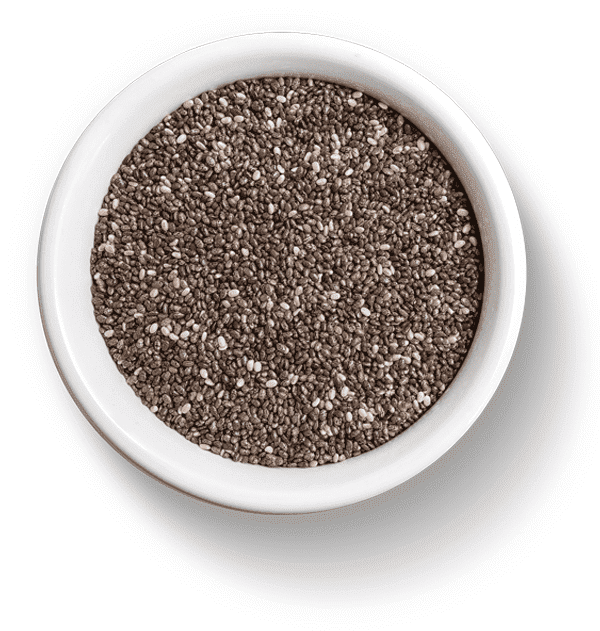
Alfalfa, scientifically known as Medicago sativa, is a nutrient-rich plant that offers several potential health benefits when incorporated into a dog’s diet. It’s rich in vitamins, minerals, protein, and fiber.
For one, it’s worth noting its high protein content. Incorporating alfalfa into your dog’s diet can help ensure an adequate protein intake, particularly for dogs with higher protein needs, such as active dogs or those recovering from illness or injury.
Alfalfa is also a good source of vitamins and minerals, including vitamins A, C, K, calcium, and iron. We’ve already mentioned the benefits of vitamins A, C and K, but what about calcium and iron? Well, they are essential for maintaining strong bones, promoting healthy teeth, and supporting overall vitality.
Besides all that, alfalfa contains dietary fiber and even has a natural detoxifying effect on the body. It contains chlorophyll, a pigment responsible for its vibrant green color, which helps eliminate toxins from the bloodstream and supports liver function.

Turmeric, a golden spice derived from the Curcuma longa plant, has gained popularity for its potential health benefits in both humans and dogs. The active compound in turmeric, called curcumin, is responsible for many of its therapeutic properties.
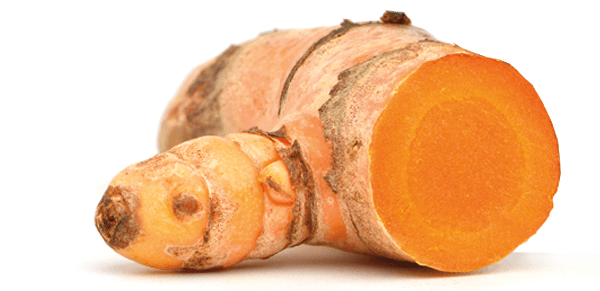
Hemp seed flour is a versatile and nutrient-dense ingredient that can provide numerous health benefits for dogs. It is derived from the seeds of the hemp plant, but it does not contain significant levels of the psychoactive compound THC.
One of the biggest benefits of hemp seed flour is its excellent balance of essential fatty acids. It is rich in omega-3 and omega-6 fatty acids, including alpha-linolenic acid (ALA) and linoleic acid (LA). These fatty acids are crucial in supporting dogs’ overall health, including promoting healthy skin and coat, supporting a robust immune system, and aiding in proper brain function.
Hemp seed flour is also a good source of protein. It contains all essential amino acids, making it a complete protein source for dogs. Not only that, but hemp seed flour is also rich in dietary fiber. This means it can help regulate the digestive system, support colon health, and contribute to optimal gut function.
Hemp seed flour also contains an array of vitamins and minerals, including vitamin E, magnesium, phosphorus, potassium, and zinc. Vitamin E is an antioxidant that helps protect cells from oxidative damage. Magnesium and phosphorus are essential for bone health and proper nerve and muscle function. Potassium supports heart health and electrolyte balance. Zinc is necessary for immune function, skin health, and wound healing.
